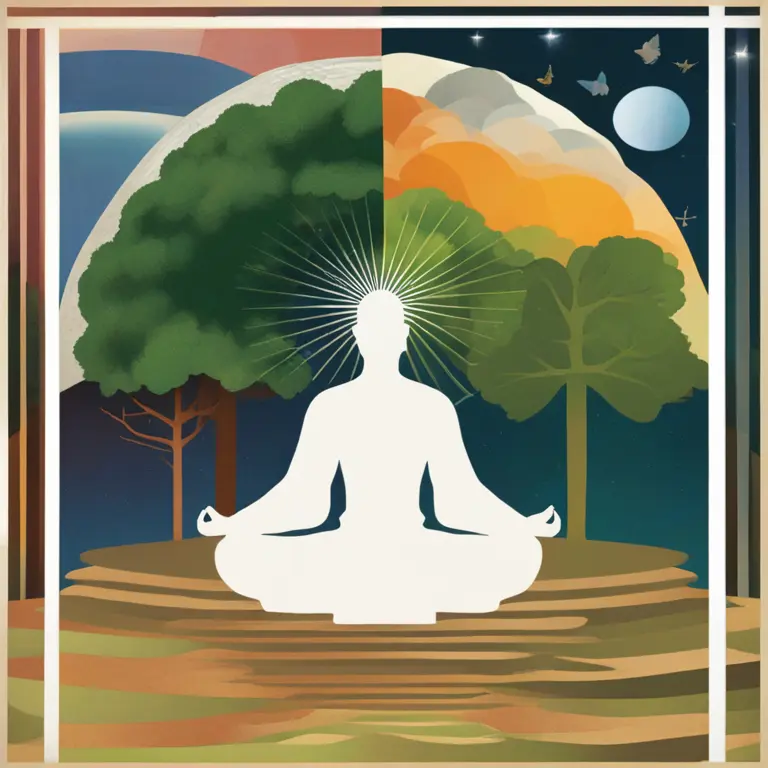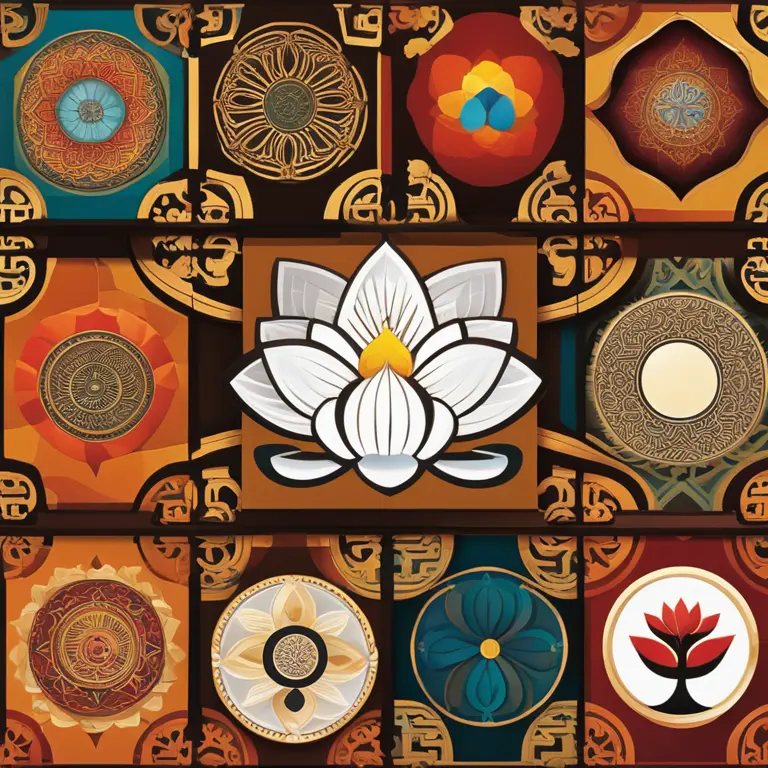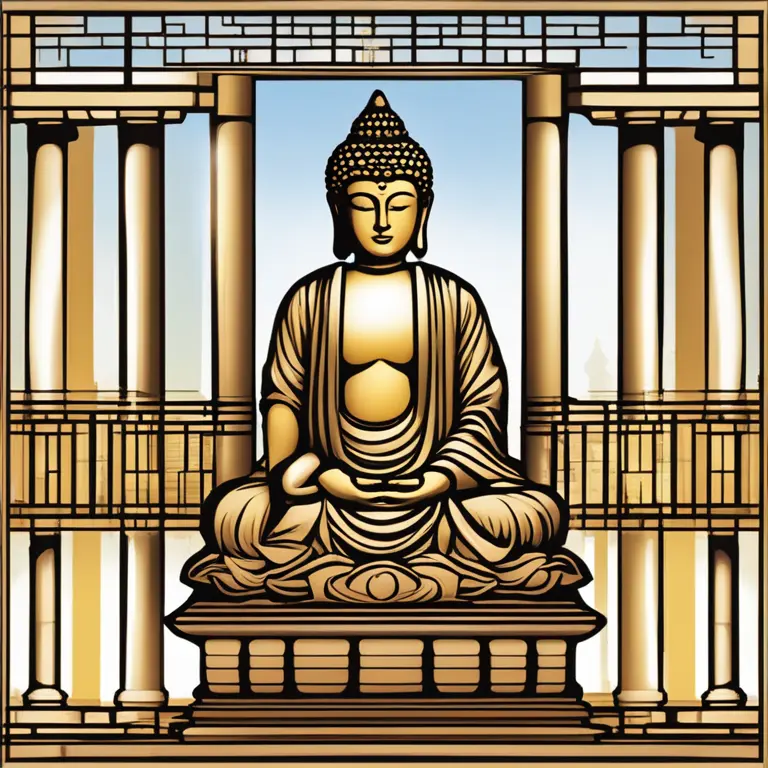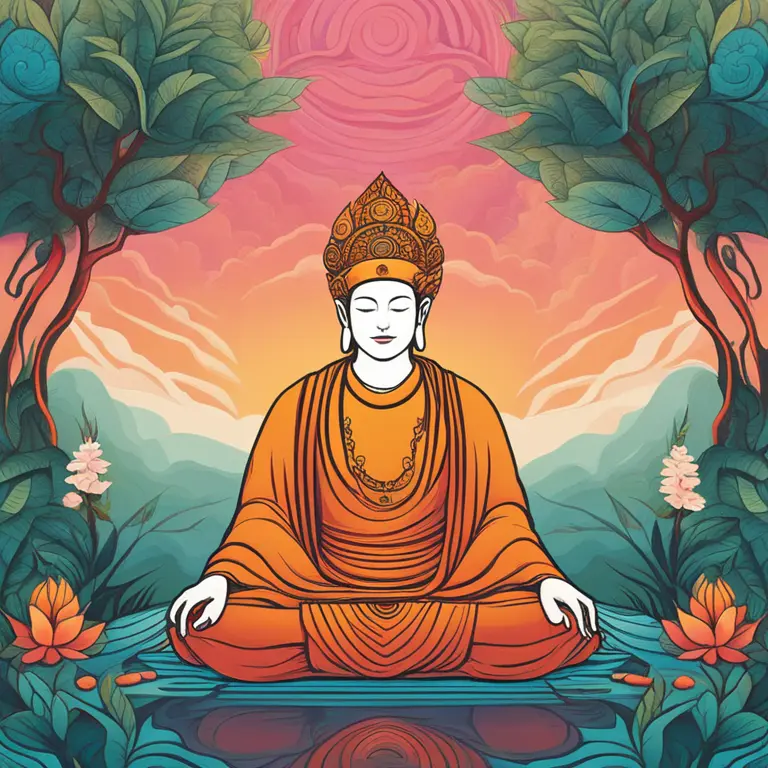
The Birthplace of Meditation
Trace the roots of meditation and discover how this ancient practice began its journey through time.
article by Hina Kurosawa
The Dawn of Meditation
Meditation is as ancient as the very civilizations that pondered the stars and nature. Its origins soak into history, flowing back thousands of years. Historical records suggest that the early practices that led to meditation began in the Indian subcontinent. The Vedas, composed around 1500 BCE, are among the earliest texts describing meditation-like practices, known as dhyana in Sanskrit. This process aimed at transcending the mind and emotional states to reach a form of inner peace and understanding of the self.

Cultural Expansion and Influence
While meditation is deeply rooted in the Hindu tradition, the concept proliferated across various cultures and continents over time. Buddhists adopted and adapted meditation from Hinduism, and it became a vital pillar of Buddhist practice. The Buddha, who lived and taught in the 5th or 4th century BCE, is often considered a pivotal figure in the history of meditation. His teachings spread throughout Asia, each region shaping its own unique practices. Notably, China and Japan developed Zen Buddhism, which put a considerable emphasis on meditation as a path to enlightenment.

The Philosophical Threads
It's not just Eastern cultures that embraced the meditative journey; Western thought also explored similar concepts. The ancient Greeks practiced forms of meditation through their philosophies, especially Stoicism, which encouraged self-reflection and control over one's reactions. Although not meditation in the Eastern sense, these practices share a spiritual kinship with the meditative traditions that focus on the mind and inner experience.

Modern Era and Scientific Inquiry
By the mid-20th century, meditation began to seep into Western consciousness, helped by figures such as Maharishi Mahesh Yogi who popularized Transcendental Meditation. The latter half of the century witnessed a surge of interest in the practice, further fueled by scientific studies exploring its potential benefits for health and wellbeing. Now, in the current era, meditation is an amalgamation of ancient wisdom and contemporary science, often recommended for its capacity to reduce stress, improve mental clarity, and enhance emotional equilibrium.

The Global Landscape of Meditation Today
Today, meditation has transcended religious and cultural borders, becoming a global phenomenon. With the universal language of mindfulness, it addresses the challenges of modern living. The digital age has played a substantial role in this worldwide diffusion, with countless apps, online courses, and virtual retreats available at our fingertips. As humanity steps into an increasingly stressful world, meditation is rediscovered continually, providing a quiet refuge and a powerful tool for personal growth and harmony.
Meditation's Role in Future Society
As we look towards the future, meditation seems set to evolve further, integrating with technologies such as virtual reality and biofeedback to enhance the practice. Researchers continue to plumb its depths, learning how it can support not only individual wellbeing but also contribute to broader social and cultural advancements. In this journey that started thousands of years ago, one thing remains evident: meditation's capacity to transform is timeless.
Published: 1/24/2024
Modified: 1/24/2024
More predictions
Come back here soon to learn more about yourself and your future


Varieties of Meditation Techniques for Inner Harmony
Explore different meditation techniques to enhance your inner peace and spiritual growth in this comprehensive guide.


Soothing Sleep: Meditation for Restful Nights
Discover effective meditation practices to enhance sleep quality and embrace restfulness in this insightful article.


The Most Effective Meditation Techniques for Harmony
Discover the potency of various meditation practices tailored for spiritual harmony and self-mastery as we navigate the diverse landscape of mindful tranquility.